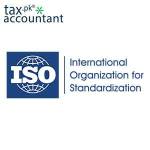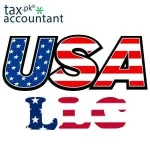Do not panic if you have received this notice. The first step to responding calmly and effectively to this formal notification from the tax authorities is to comprehend its objective.
What Does Rule 44(4) Mean by a Notice?
In accordance with Rule 44(4) of the Income Tax Rules, 2002, companies or persons that serve as “withholding agents” are normally given a notification. A person who is in charge of taking tax out of or collecting it from payments they make to other people—like salary, rent, or supplier payments—and submitting it to the FBR is known as a withholding agent.
In essence, the notice requests that you submit a reconciliation statement. Your monthly or annual withholding tax statements and the numbers in your financial accounts are what the FBR (https://fbr.gov.pk/) wants to compare. They are confirming that you have correctly accounted for, deducted, and deposited the tax that you were required to deduct. This is a component of the FBR’s attempts to keep an eye on and enforce compliance with withholding taxes.
A Comprehensive Guide to Handling the Notice
This notice serves as a call to action. Ignoring it can have major repercussions and is not an option. Here’s how to handle it in a straightforward, expert manner:
1. Take Quick Action Instead of Panic:
The first and most crucial task is to maintain your composure. Recognise that this is a standard aspect of tax management. But your worst enemy is procrastination. A deadline will be specified in the notice, and meeting it is essential.
2. Read the Notice Carefully:
Read the notice carefully from beginning to end. Recognise which particular tax periods, sections, and payment kinds are under scrutiny. Make a note of the deadline for your response as well as the name of the officer who sent the notification.
3. Compile all pertinent documents:
The most important aspect of your comment is this. To bolster your argument, you must collect all supporting documentation. This comprises:
Your withholding tax statements for the given time, both monthly and annually.
- Your financial records, such as your balance sheet and profit and loss statement.
- Accounts and ledgers for payments and expenses from which taxes were to be deducted.
- Payment records and invoices for the relevant transactions.
- Copies of your payees’ tax deduction certificates.
- Proof that the tax was filed with the FBR, such as computerised payment receipts, or CPRs.
4. Create a thorough reconciliation statement:
The reconciliation statement will be the main focus of your answer. The amounts you reported to the FBR and the numbers in your financial records should be properly reconciled in this document. Here, a qualified tax expert can be quite helpful. The reconciliation should make sense, be simple to understand, and be backed up by the documentation you have collected.
5. Write an Expert Reaction Letter:
A written letter sent to the issuing officer should be your response. * Mention the date and notice number in this letter.
- Declare that you are giving the information that has been asked for.
- Your reconciliation statement should be presented in an orderly and understandable way.
- All supporting documents should be attached as annexures, and your letter should make mention to them. Be professional and courteous. Don’t provide extraneous details or excuses.
6. Consult a Professional:
Seeking the assistance of an experienced tax adviser or chartered accountant is strongly advised if the notice is complicated or if you have any questions about any part of the procedure. In addition to preparing a strong answer and, if necessary, representing you in an FBR hearing, they may assist you in comprehending the legal ramifications.
What Takes Place If the Notice Is Ignored?
Serious repercussions may result from disregarding a notice under Rule 44(4), including:
Best Judgement Assessment: The Commissioner may proceed to make an assessment based on the information at hand, which could result in an excessive tax demand.
Legal Action: The FBR has the authority to start legal procedures for non-compliance with tax rules. You may be subject to penalties for non-compliance and additional tax on any amounts that were not declared or that were under-deducted.
In conclusion, although though a notification under Rule 44(4) is a serious matter, it can be handled with professionalism and initiative. You may effectively handle the matter and guarantee that your company continues to comply with all tax laws by comprehending the notice’s content, assembling the necessary paperwork, and reacting in a prompt and organised manner.








